Walnuts, cashews, and sunflower seeds contain vegetable protein, healthy fats, and vitamins that are good for pregnant women's health.
Nutritionist Do Thi Lan, Tam Anh General Hospital, Hanoi, said that nuts rich in folic acid and fatty acids such as omega-3 and omega-6 are good for the neurological development of the fetus. Pregnant women who eat nutritious nuts help improve their children's IQ, memory and concentration later on.
Almond
Almonds provide vitamins, minerals, protein and fiber for pregnant women. This food contains folic acid which promotes neurological development and reduces the risk of birth defects in the fetus. Fiber also helps control blood sugar levels, preventing gestational diabetes. This nut is also rich in iron, helping to prevent anemia and related health problems.
Pregnant women should eat 4-6 almonds on an empty stomach every morning to increase and maintain energy. Do not eat too much because it can cause side effects such as bloating, constipation, flatulence, and blurred vision.
Walnuts
Nuts are rich in omega-3 fatty acids, which are essential for the health of both mother and baby. Walnuts contain a good amount of folate, which helps prevent neural tube defects in newborns. They also provide essential minerals such as magnesium, phosphorus, potassium, and iron, which are beneficial for pregnant women.
Eating walnuts helps prevent and reduce the risk of gestational diabetes. However, pregnant women should only consume moderate amounts, about 4-5 walnuts per day is enough, avoid too much as it can cause diarrhea.
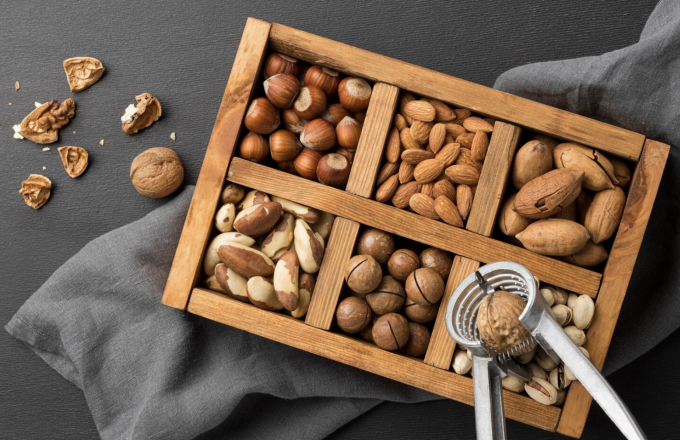
Supplementing nutritious nuts such as walnuts, macadamia nuts, and almonds brings many benefits to pregnant women and fetuses. Photo: Freepik
Macadamia nuts
Macadamia is one of the nuts recommended for consumption during pregnancy to supplement nutrition for the fetus. On average, 100g of macadamia contains more than 25 types of vitamins and minerals, including 7.14g of protein. These nutrients help improve the immune system, helping mother and baby avoid many infectious diseases.
Calcium helps pregnant women's bones and teeth become stronger. Other minerals in the seeds such as manganese and phosphorus help stimulate calcium absorption into the body.
Fiber in food helps pregnant women prevent constipation and other intestinal problems. In addition, regular consumption of macadamia nuts also strengthens the immune system of the fetus right from the womb.
Cashew
Cashews are rich in vitamins, macronutrients and minerals essential for the mother's body and the development of the fetus. Cashews contain protein that helps develop body tissues. Iron is necessary for the creation of healthy red blood cells that transport oxygen throughout the body.
It is also a rich source of folate and folic acid, which help prevent neural tube defects in the fetus. This seed is also rich in fiber that acts as a prebiotic (a type of soluble fiber) that nourishes the beneficial intestinal microflora for a healthy digestive system.
Although cashews are rich in nutrients, pregnant women should not consume too much because the calorie content in the nuts is quite high and can cause excessive weight gain.
Pistachios
Pistachios, also known as pistachios, contain protein and fiber, folate is very useful, reducing the risk of birth defects. Supplementing pistachios can reduce the risk of developing gestational diabetes. Magnesium content in nuts also controls stable blood sugar levels.
Pregnant women should only consume a moderate amount of no more than 15 seeds a day. If you supplement too much during pregnancy, it can cause some side effects such as constipation, bloating, nausea, vomiting, diarrhea or abdominal pain.
Sunflower seeds
Sunflower seeds are rich in vitamins, proteins, phytochemicals, minerals, and unsaturated fats. Vitamin E in the seeds acts as an antioxidant, protecting the body from damage caused by free radicals.
Potassium content helps keep pregnant women's blood pressure stable. Phytochemicals help strengthen the immune system during pregnancy.
Watermelon or pumpkin seeds
Watermelon seeds are low in calories, rich in protein, healthy fats, copper, zinc, selenium, iron, potassium, magnesium, B vitamins and folic acid. All nutrients contribute to the overall development of mother and baby, helping the fetus to develop healthily.
Besides watermelon seeds, pumpkin seeds are rich in omega-3 fatty acids, zinc, magnesium, iron, calcium and phosphorus. This is a suitable snack for pregnant women, not only reducing hunger but also meeting important nutritional requirements.
Lotus seeds
Lotus seeds provide a lot of good protein to help enhance the development of the nervous system and brain of the fetus. They are also rich in vitamin B complex and fiber, low in calories, have the effect of burning calories and controlling blood sugar. Eating lotus seeds helps pregnant women reduce fatigue, calm and relax, and sleep easily.
However, lotus seeds are only really good and safe for pregnant women if used properly. Overuse can cause bloating, constipation and flatulence.
To ensure food safety, these nuts need to be stored in sealed containers to avoid mold. Pregnant women should not use nuts that are past their expiration date or have unknown origins, which can lead to food poisoning and digestive disorders. Limit the use of these nuts processed in ways such as salted roasting, oil frying... because they affect the health of the mother and fetus.
In general, nuts such as almonds, walnuts, macadamia nuts, cashew nuts... all contain essential nutrients that are good for the comprehensive development of the fetus. However, these nuts contain high fat content, if eaten too much, it will cause nutritional imbalance. Pregnant women are at risk of gaining too much weight beyond the recommended level, which can lead to lipid disorders and gestational diabetes; significantly affecting the development of the fetus.
Therefore, it is necessary to control the amount of nuts eaten each day, about 30-50g of total nuts and use 2-3 times per week.
Thuy Nguyen
Source link





![[Photo] Prime Minister Pham Minh Chinh chairs meeting to discuss tax solutions for Vietnam's import and export goods](https://vstatic.vietnam.vn/vietnam/resource/IMAGE/2025/4/10/19b9ed81ca2940b79fb8a0b9ccef539a)

![[Photo] Phuc Tho mulberry season – Sweet fruit from green agriculture](https://vstatic.vietnam.vn/vietnam/resource/IMAGE/2025/4/10/1710a51d63c84a5a92de1b9b4caaf3e5)


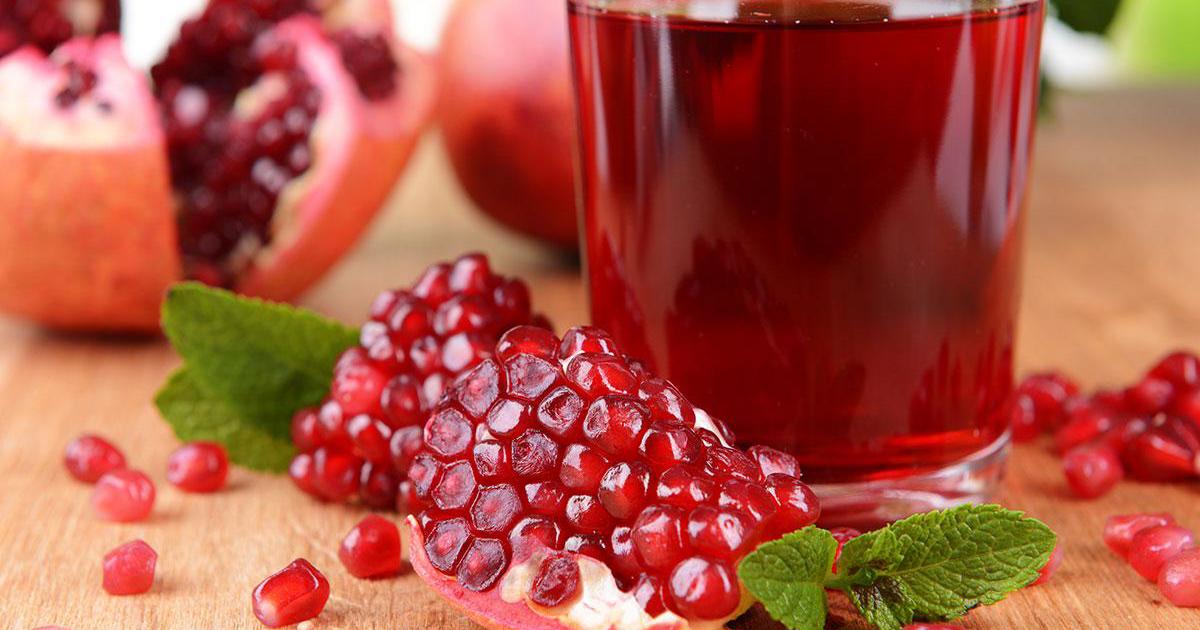


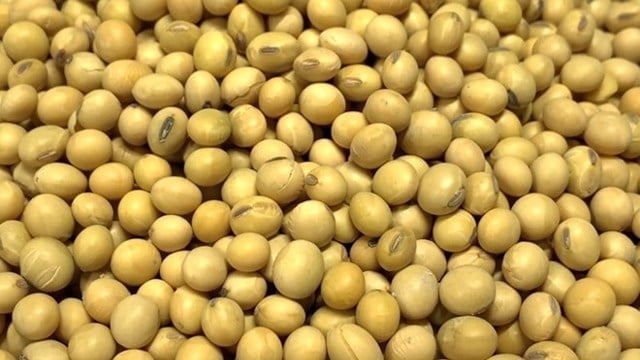





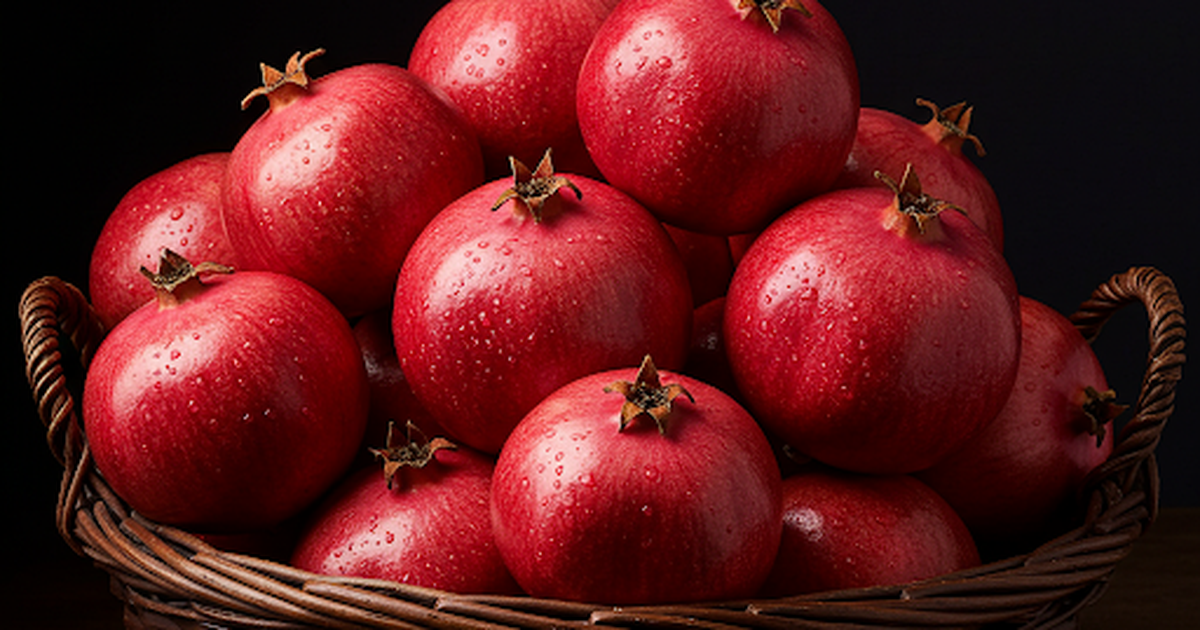


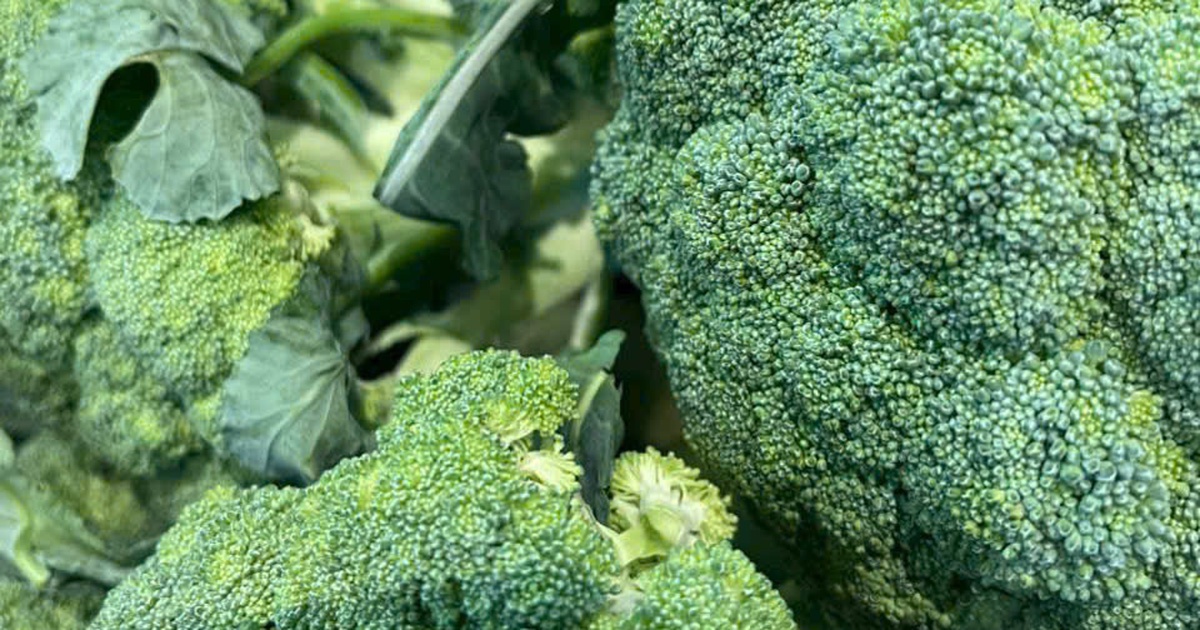











![[Photo] Unique folk games at Chuong Village Festival](https://vstatic.vietnam.vn/vietnam/resource/IMAGE/2025/4/10/cff805a06fdd443b9474c017f98075a4)





















































![[Photo] Taking advantage of every sunny hour, asphalting the road through the old forest of Y Ty](https://vstatic.vietnam.vn/vietnam/resource/IMAGE/2025/4/11/c11987f152014781abe6aad9e09fb401)











Comment (0)